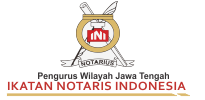Islamic Religious Brand Community Support Practices in Encouraging Creativity Values in The Religiocentric Market of Thailand
Abstract
The practice of supporting the Islamic Religious Brand Community in Encouraging Creativity Values in Thailand's Religiocentric Market is one effort that is worth considering in online transactions considering that in the conditions of virtual transactions there are many product choices so that consumers will find it easy to get goods according to religious criteria, especially halal and non-halal products so that consumers can compare the type and value of products with others. Through this religious brand community, consumers create a bond based on shared values. For the religiocentric market, especially in Thailand, shared religious values become a strong glue and influence consumer purchasing decisions. Support from the religious community which can be in the form of Religious Support, Emotional Support and Informational Support is an antecedent variable that is considered to form Customer Ethical Perceptions and trust which ultimately leads to their willingness to be involved in creativity in the Thai Religious Market. The concept above is value co-creation, namely value creation that involves customers as active actors in creating the value of the goods themselves. This research uses explanatory research with a quantitative approach to analyze data and test it. The research aims to determine the relationship between two or more variables regarding Islamic Religious Brand Community Support Practices in Encouraging Creativity Values in Thailand's Religious Market. The results of this research show that there is a close relationship that is mutually sustainable and influences each other between Islamic Religious Brand Community Support Practices in Encouraging Creativity Values in the Thai Religious Market which causes an increase in the economic level and welfare of the community, both producers and consumers, especially seen from the perspective of the religious community in Thailand.
Keywords
Full Text:
PDFReferences
Algesheimer, R., Dholakia, UM, & Herrmann, A. (2005). The social influence of the brand community: evidence from European car clubs. Journal of Marketing, 69(3), 19–34.
Bozbay, Z., Karami, A., & Arghashi, V. (2014). the Relationship Between Brand Love and Brand Attitute. The 2nd Conference on Management & Business, (May), 1–24.
Chin, W. (1998). The Partial Least Squares Approach to SEM chapter. Modern Methods for Business Research.
Chuasanga A., Ong Argo Victoria. (2019). Legal Principles Under Criminal Law in Indonesia and Thailand, Jurnal Daulat Hukum, Vol 2, No 1 (2019) http://jurnal.unissula.ac.id/index.php/RH/article/view/4218
Chuasanga A., Ong Argo Victoria. Legal Principles Under Criminal Law in Indonesia and Thailand, Jurnal Daulat Hukum, Vol. 2, No. 1, 2019, http://jurnal.unissula.ac.id/index.php/RH/article/view/4218
Deen, Thaufiq., Ong Argo Victoria & Sumain. (2018). Public Notary Services In Malaysia. JURNAL AKTA: Vol. 5, No. 4, 1017-1026. Retrieved from http://jurnal.unissula.ac.id/index.php/akta/article/view/4135
Deng, X. (2015), “Understanding Chinese consumers’ ethical purchasing decision-making process: a combination of qualitative and quantitative study”, Geoforum, Vol. 67, December, pp. 204-213.
Dillahunt, T.R., Malone, A.R., 2015. The promise of the sharing economy among disadvantaged communities. In: The Proceedings of the 33rd Annual ACM Conference on Human Factors in Computing Systems, April 18–23. Seoul.
Firat, A.F., Venkatesh, A., 1993. Postmodernity: the age of marketing. Int. J. Res. Mark.10 (3), 227–249.
Geisser, S. (1974). A predictive approach to the random effect model. Biometrika. https://doi.org/10.1093/biomet/61.1.101
Ghozali, Imam. 2008. Struktural Equation Modelling, Edisi II. Universitas Diponegoro. Semarang
Golooba, M., & Ahlan, A. R. (2020). Service Value Co-Creation in Research & Innovation Practices in Higher Education Institutions in Malaysia. Procedia Technology, 11(Iceei 2013), 342–347. https://doi.org/10.1016/j.protcy.2013.12.200
Gottlieb, B. H., & Bergen, A. E. (2010). Social Support Concepts and Measures. Journal of Psychosomatic Research, 69(5), 511–520. https://doi.org/10.1016/j.jpsychores.2009.10.001
Grunig, J. E. (2006). Furnishing The Edifice: Ongoing Research on Public Relations As a Strategic Management Function. Journal of Public
Gummesson, E., 1987. The new marketing: developing long term interactive relationships. Long Range Plann. 20 (4), 10–20. https://doi.org/10.1016/0024-6301(87) 90151-8.
Gustafsson, A., Johnson, M.D., Roos, I., 2005. The effects of customer satisfaction, relationship commitment dimensions, and triggers on customer retention. J. Mark. 69 (4), 210–218.
Hair, J. F., Ringle, C. M., & Sarstedt, M. (2012). Partial Least Squares: The Better Approach to Structural Equation Modeling? In Long Range Planning. https://doi.org/10.1016/j.lrp.2012.09.011
Hajli, M. N. (2014). The role of social Support on Relationship Quality and social commerce. Technological Forecasting and Social Change, 87, 17–27. https://doi.org/10.1016/j.techfore.2014.05.012
Hendar, H., Astuti, E. D., & Pudjiastuti, S. H. (2022). Value co-creation on repurchase intention in sharing economy platform. Journal of Innovation in Business and Economics, 6(01), 37-54.
Hendar, H., Ferdinand, A.T., and Nurhidayati, T. (2017). Introducing the religio-centric positional advantage to Indonesia small business. Management & Marketing, 12(1).doi:1515/mmcks-2017-0006
Hennig-Thurau, T., Gwinner, K.P., Gremler, D.D., 2002. Understanding relationship marketing outcomes: an integration of relational benefits and Relationship Quality. J. Serv. Res. 4 (3), 230–247.
(See the original file version)
DOI: http://dx.doi.org/10.30659/akta.v11i3.39365
Refbacks
- There are currently no refbacks.
Copyright (c) 2024 JURNAL AKTA

This work is licensed under a Creative Commons Attribution-NonCommercial-NoDerivatives 4.0 International License.
Jurnal Akta has been indexed by:
Editorial Office: Jurnal Akta Room 2nd Floor Imam As Syafei Building Faculty of Law Universitas Islam Sultan Agung. Jln. Kaligawe KM. 4, Semarang City, Central Java, Indonesia. Phone +62 24 6583584 Fax +62 24 6582455
Email: jurnalakta@unissula.ac.id

![download[4]](https://jurnal.stiki-indonesia.ac.id/public/site/images/adminjurnal/template_jurnal_tosca1.png)














